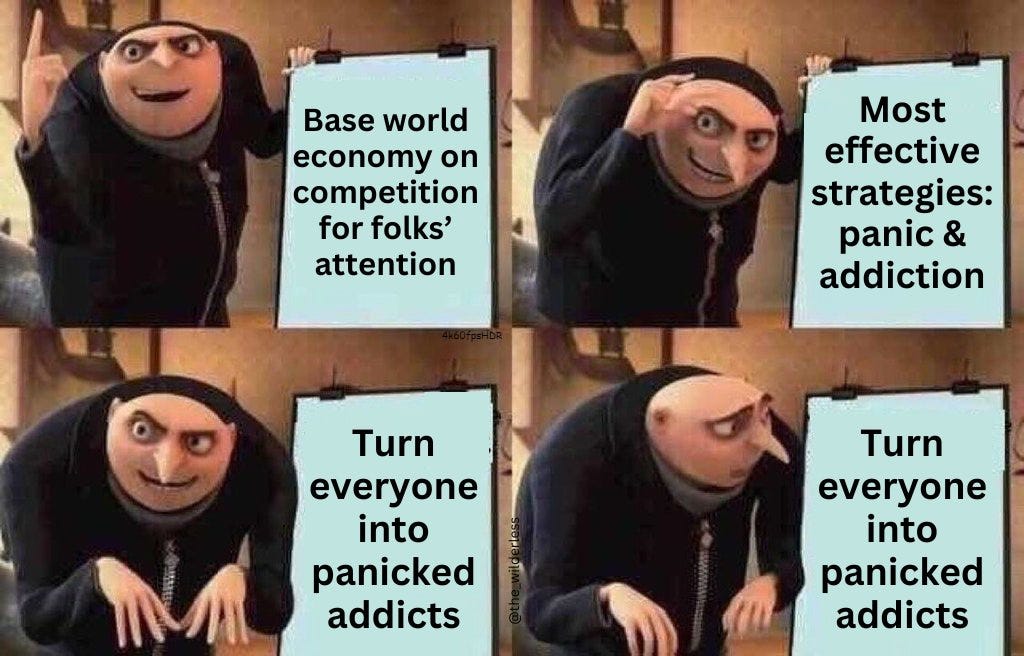✍Journal. Relationships, Teachers, 'Sacred' Spaces, and Learning from Chris Davis, Reece Duca, Scott Bessent, Aswath Damodaran, and Morgan Housel
"My goal is basically to wake up in the morning, love what I'm doing, love who I'm working with, be proud of what I'm doing, helping other people to be successful." Reece Duca of IGSB
Hello everyone,
I barely finished writing about happiness and the importance of relationships, when life ensured that I integrated the lesson. I’d set out for a picture perfect weekend trip upstate with my girlfriend. Nature, colorful autumn foliage, a cozy AirBnB, good food, lots of time together and away from the screens. Ingredients for two days of simple happiness. Well, the trip ended when we broke up after lunch on Sunday afternoon. Not an experience I would recommend. It was a long drive back to New York.
But that’s the thing about relationships: important as they are, they require that we invest and expose ourselves to uncertainty. There is no way to truly open up while limiting your downside. We accept that the outcome of all our invested energy and vulnerability is often a collection of memories and lessons. Rumi once wrote that “you have to keep breaking your heart until it opens.” Such is the experience of a full life. Without pain, no joy. Without vulnerability, no deep connection.
This is why the wisest people constantly emphasize the importance of populating your world with amazing people. On a recent podcast, Chris Davis (of the Davis Dynasty) recounted a time he’d asked Charlie Munger what could be learned from him and Buffett about living a happy life:
And he immediately started talking about relationships. Same with Ed Thorp, when I asked him about the secret of a happy life, how to win the game of life ... he starts talking about how, who you spend your time with is clearly the most important thing of all.
This was echoed by Reece Duca, founder of the Investment Group of Santa Barbara, who recently gave a rare interview:
My goal is basically to wake up in the morning, love what I'm doing, love who I'm working with, be proud of what I'm doing, [and] help other people to be successful.
In other words: tap dance to the office. Which is only possible if you enjoy working with your partners, co-workers, and friends in the business.
Duca turned $2,000 of savings into $75,000 by the time he left Stanford with his MBA. That became the seed capital behind the secretive Investment Group of Santa Barbara (he never managed outside money). It seems Duca skipped a Ben Graham-style deep value phase because his mentor had been obsessed with finding the best business models:
I come to UCSB thinking I'm going to be an engineer. And then I take an economics class from a professor, this fella by the name of Herb Kay. And he had done his PhD at Stanford in economics about companies and business models that had started during the Depression and had been able to survive and thrive in the Depression, World War Two, and then the Consumer 50s. What were the business models, and what were the attributes?
Duca’s education involved a lot of grunt research work:
The most important interaction I had with him was on S-1s. Every two weeks or so, he'd give me two or three S-1s. Read it from cover to cover and come back with the right question. We're gonna get on the phone with the investment banker, we're gonna get on the phone with the CEO, we're going to talk to a couple of customers. And so I'd go back to my room and I'd spend time reading these S-1s. … I realized my learning curve was going through the roof as it relates to my role as an investor.
This became the kernel behind Duca’s philosophy which emphasizes simplicity, concentration, and qualitative research into business models.
Another idea that stood out to me was that Duca, similar to Buffett, removes himself from the fray to do deep work. Duca regularly spends time in Italy to get away from “the hustle and bustle of this industry” and its “firehose of data”.
When I got to Italy, I would have anywhere between one and three banker boxes of files, and by myself, in a quiet room, I would think about our companies. I would think in a way that I simply couldn't do it if I was in my office.
Macro investor and Soros protege Scott Bessent echoed the idea of clear boundaries in a recent interview. His Saturdays are ‘sacred’:
I try to put my devices away, try to spend it with family, exercise, and then by Sunday afternoon, start up again. My secret weapon has always been starting the week on Sunday afternoon. Starting 1, 2 o'clock, maybe working until 8, 9, 10, and then you have a jump on the week. But that's because Saturday has been sacred.
Aswath Damodaran hit on a related idea during his recent appearance on Invest Like The Best when he noted that we “read too much and think too little”:
I don't have that problem. I have lots of time. ... an idle mind is often where you get your best connections of ideas. Your best thinking is done when you have nothing in your mind per se that you have to get done. The advantage of not having a to-do list on most days is I get more done when I have no to-do list than when I do.
Finally, Morgan Housel emphasized the importance of sustainability by not exhausting yourself:
I’m not interested in anything that’s not sustainable. Friendships, investing, careers, podcasts, reading habits, exercise habits. If I can’t keep it going, I’m not interested in it.
I think the only way to do that is if you are going out of your way to live life at 80-90% potential. If you’re always trying to squeeze out 100%, almost certainly it’s going to lead to burnout, whether it’s a friendship or a relationship or an investing strategy. If you’re a type A person, it’s almost impossible to do. But going out of your way to live life at 80% has always been a strategy that I want to do just because I want to keep it going for a long time.
It’s very easy to get stuck in anxiety over short-term goals and performance. There is always the temptation to grind harder. But by doing this, we undermine our chances of winning in the long run.
We need time to build quality relationships (and avoid the Reading Obsession). We need rest or risk burning out. And we need time away from the “firehose” of noise and distraction and to re-connect with our night shift of creativity and insight. I know it can be tough to find that ‘sacred’ space, especially if you don’t have the luxury of going to Italy or shutting your phone off on weekends.
🗽This is one reason I have been hosting a practice called sound meditation at St. Marks Yoga in New York’s East Village. It’s been a transformative practice for me and I’m very happy to finally share it with others. For 90 minutes, participants lie down, relax, and listen to carefully chosen instruments such as singing bowls and the gong. It may sound a bit esoteric but I’ve found it to be one of the most powerful ways to completely leave the noise and nonsense behind and clear one’s inner table.
In a world that is constantly triggering our fight-or-flight response and can leave us chronically stressed, I can’t think of a more important idea than cultivating practices and ‘sacred’ spaces that fill your reservoir. I look forward to hosting more (stop by!) and I’m exploring the idea of doing one for subscribers and friends if I can find a sizable and suitable space.
Thank you for reading,
Frederik
Links and some favorite takeaways
As you can tell, the last few weeks were abundant with excellent content and ample lessons about money and life. I don’t know about you, but I feel overwhelmed every time I open my ‘new episodes’ tab. There’s no way I can keep up with all of my favorite podcasts (and even thinking about ‘keeping up’ is a learning machine trap). Instead, I listen to just a few and extract my favorite quotes and ideas.
I’m going to share a few below from interviews with Reece Duca, Scott Bessent, Aswath Damodaran, and Morgan Housel.





